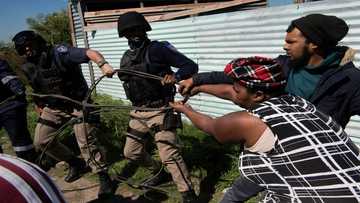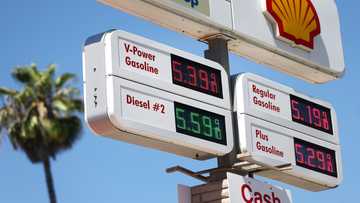Argentina monthly inflation highest in two decades

Source: AFP
Argentina recorded an inflation rate of 12.4 percent in August, the highest monthly change in over two decades in a country dogged by chronic economic instability, its statistics agency said Wednesday.
Argentines are already struggling to make ends meet after years of rising prices and currency volatility, and the latest figures come a little over a month before general elections.
Prices rose 124 percent over the past 12 months, and 80.2 percent since January according to a report by the Indec agency.
"There is nothing, no money to save. We live day to day," said teacher Karina Sablich, while doing her grocery shopping.
Economy Minister Sergio Massa, who is running for president, said last week that "August was the worst month in the last 25 years" for the economy.
The increase in inflation had been expected after the peso was devalued by 21 percent in August, as part of a deal with the International Monetary Fund (IMF) to unblock credit as part of a $44 billion loan package.
PAY ATTENTION: Сheck out news that is picked exactly for YOU ➡️ click on “Recommended for you” and enjoy!
The last time monthly inflation hit double digits was in April 2002, when it stood at 10.4 percent.
"An anti-inflationary plan is needed, but obviously that won't happen until" a new government takes over in December, said economist Victor Beker, from the University of Belgrano.
'The saddest thing'
Argentines are no stranger to inflation woes, with several periods of hyperinflation in the late eighties and early nineties, which reached up to 3,000 percent.
To exit that crisis, the government pegged the currency to the dollar, but a worsening economic situation made that untenable by 2001.
When the peso was uncoupled from the greenback, its value plummeted, causing a run on banks as people's savings were wiped out, and deadly social unrest.
A few days after the devaluation, Argentina defaulted on over $90 billion in foreign debt, further deepening its economic and social crisis.
Since then, Argentina has battled with boom and bust cycles, inflation, currency devaluations, and debt restructuring.
"We continue despite everything, knowing that for now things are not going to change," said the teacher Sablich.
"That's the saddest thing about being in this country right now, the uncertainty, that we don't know how we're going to get out, who's going to get us out, how we're going to do it."
Election wide open
Many weary Argentines are backing a radical political outsider in October's presidential race.
Buenos Aires lawmaker Javier Milei, who has vowed to dynamite the central bank and dollarize the economy, in August scored the most votes in a joint primary election between all parties, seen as a litmus test for the main vote.
His main rivals will be former security minister Patricia Bullrich on the right, and economy minister Massa from the ruling center-left coalition.
Massa, scrambling to ease the pressure on citizens' pockets, on Monday announced an increase in the minimum taxable monthly income to 1.7 million pesos ($4,850 official rate, $2300 on the parallel market).
This is double the previous amount, and would leave fewer than 800,000 people in the country of 45 million paying income tax, Massa said.
New feature: Сheck out news that is picked for YOU ➡️ click on “Recommended for you” and enjoy!
Source: AFP



